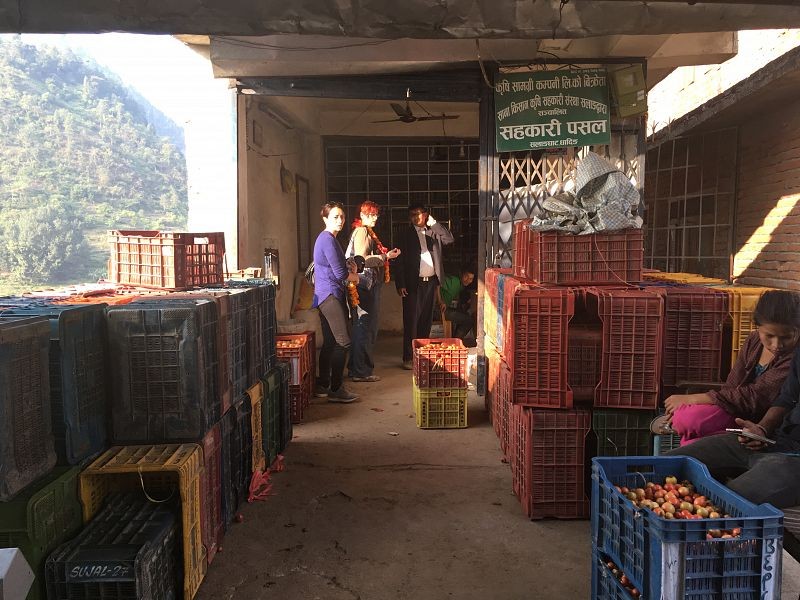This project aims to demonstrate the viability of a community managed irrigation system in rural Nepal, using a photovoltaic pumping system to increase production levels and also enhance the quality of the vegetables produced.
 The lack of a reliable energy supply for irrigation leaves many Nepalese farmers without access to the water necessary for growing vegetables in the dry season. While the government subsidises solar photovoltaic technologies for the pumping of drinking water, access to energy for the purposes of irrigation is not secure in many parts of rural Nepal.
This project aims to demonstrate the viability of a community managed irrigation system in rural Nepal, using a photovoltaic pumping system to increase production levels and also enhance the quality of the vegetables produced.
The specific objectives of the project are:
The lack of a reliable energy supply for irrigation leaves many Nepalese farmers without access to the water necessary for growing vegetables in the dry season. While the government subsidises solar photovoltaic technologies for the pumping of drinking water, access to energy for the purposes of irrigation is not secure in many parts of rural Nepal.
This project aims to demonstrate the viability of a community managed irrigation system in rural Nepal, using a photovoltaic pumping system to increase production levels and also enhance the quality of the vegetables produced.
The specific objectives of the project are:
- To increase the access to a reliable energy supply for irrigation, enabling 150 households to increase their production of quality vegetables throughout the year;
- To develop an Energy Service Provider (ESP) to manage the irrigation systems;
- To use impact and portfolio investment to finance energy projects in rural areas;
- And to disseminate the outcomes and lessons learned to practitioners and policy makers for up-scaling the technology and business model in other areas.
 The project will be implemented in two rural districts of Nepal (Makwanpur and Dhading). The project partners are Practical Action, SunFarmer, Sana Kisan Bikash Kendriya Sangh (SKBKS), Small Farmers Development Bank (SFDB) and local cooperatives. The local cooperatives will implement and manage the project at field level, while SunFarmer, a US based not for profit organisation, will provide impact and portfolio financing to the project. SKBKS will coordinate capacity building support among those cooperatives that benefit from wholesale loans from the SFDB. The project is scheduled to last for two years.
The project will be implemented in two rural districts of Nepal (Makwanpur and Dhading). The project partners are Practical Action, SunFarmer, Sana Kisan Bikash Kendriya Sangh (SKBKS), Small Farmers Development Bank (SFDB) and local cooperatives. The local cooperatives will implement and manage the project at field level, while SunFarmer, a US based not for profit organisation, will provide impact and portfolio financing to the project. SKBKS will coordinate capacity building support among those cooperatives that benefit from wholesale loans from the SFDB. The project is scheduled to last for two years.Projects with same technology
Piloting solar energy projects in four Timor-Leste communities
To provide schools. health clinics and community centers with continues light trough community-led PV solar systems
Solar Powered Central Landing Area for Night Fishing in the Lagonoy Gulf, Philippines
The aim of this project is to improve the value chain of tuna handline fisheries by establishing a solar-powered central landing site for night fishing activities.
Projects in same country
Exchange: Knowledge Exchange to Make Solar Water Pumping (SWP) Systems Affordable for Small Farmers
To scale-up the use of solar water pumping systems and provide reliable irrigation.